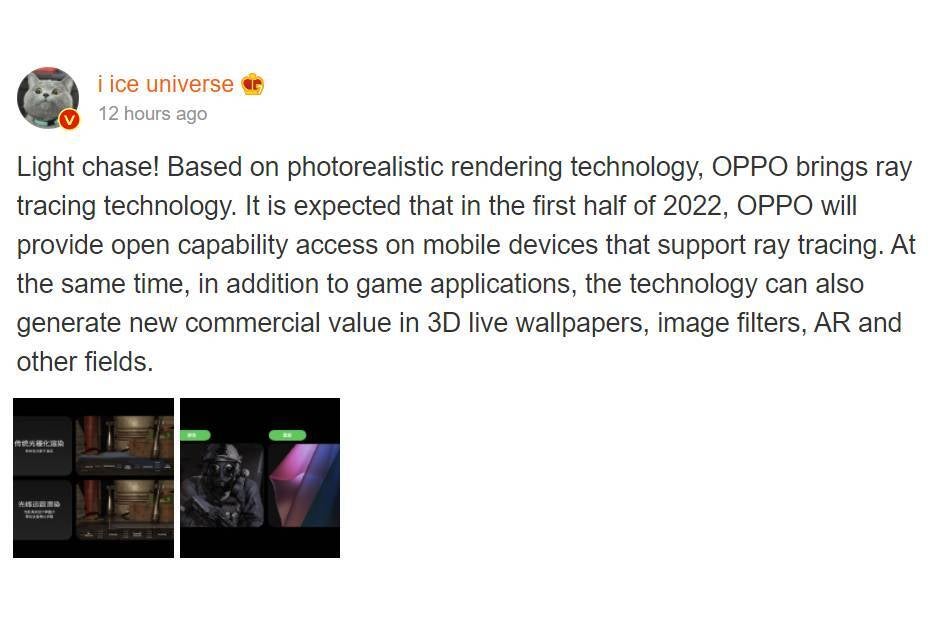Oppo tries to steal Samsung's thunder by demoing ray tracing on a handset

After Samsung, Oppo is gearing up to bring ray tracing to smartphones. This graphics rendering method makes games look more realistic by producing lifelike lighting effects and shadows.
During the OPPO Developer Conference (ODC), the company demoed the ray tracing technique on the Oppo Reno6 Pro 5G, which came out in June, and is powered by MediaTek's flagship 6nm Dimensity 1200 chipset and the Arm Mali-G77 GPU. The chip itself is not capable of ray tracing, so this appears to be software-accelerated ray tracing and is apparently baked into ColorOS 12.
GizmoChina reports that Oppo's ray tracing implementation is based on the Vulkan API and is indeed a part of the operating system. The effects will not just be visible in games, but also in image filters, live wallpapers, and AR applications. The company plans to commercialize the tech next year. Meanwhile, Oppo is also allegedly developing a 3nm mobile SoC, and at the earliest, it will be announced in 2023.

Leaker Ice Universe says Oppo will introduce its ray tracing tech in H1 2022
In related news, Arm plans to launch a flagship GPU next year, which will be a 30 percent improvement over the recently announced Mali-G710, and the company has also said that it's working to bring ray tracing to its GPUs.
Samsung will likely beat Arm and Oppo to the punch in announcing ray tracing support for smartphones. The South Korean behemoth has joined hands with AMD to embed the tech into its Exynos chipsets which usually power the European and Middle Eastern variants of its flagship smartphones. The chip may make the Galaxy S22 series the best gaming smartphone of 2022.
Not everyone is convinced that smartphones are ready for ray tracing. Nvidia’s CEO Jen-Hsun Huang, for instance, thinks that ray tracing games are too large for smartphones. Also, the experience will understandably not be comparable to desktops and dedicated gaming consoles.
Follow us on Google News












Things that are NOT allowed:
To help keep our community safe and free from spam, we apply temporary limits to newly created accounts: